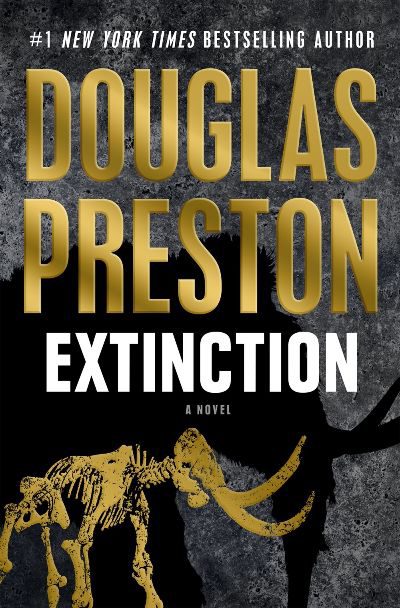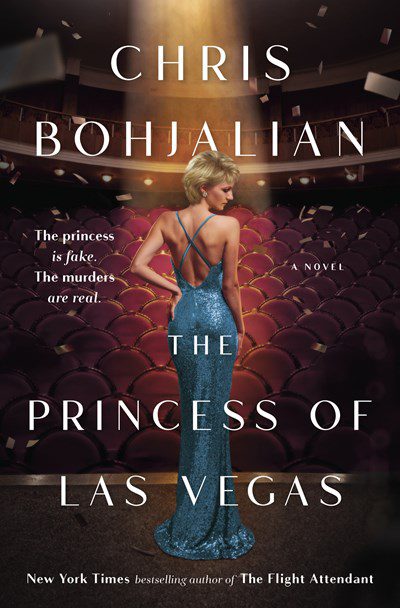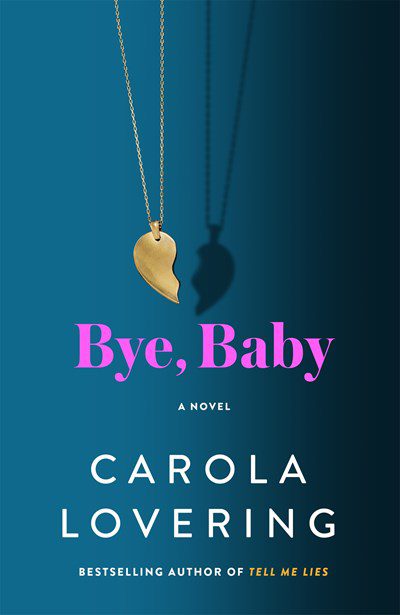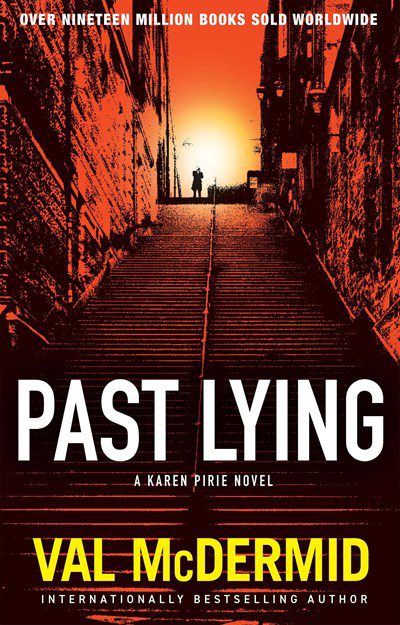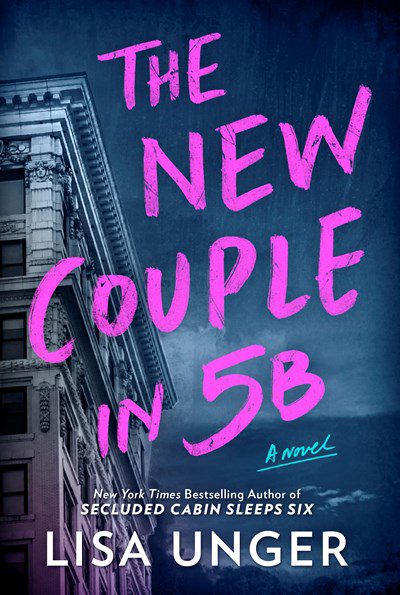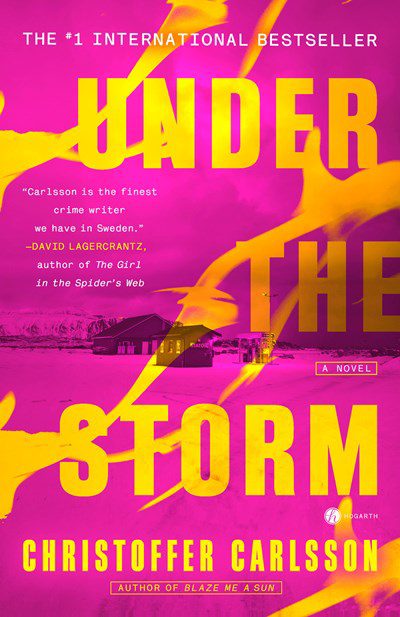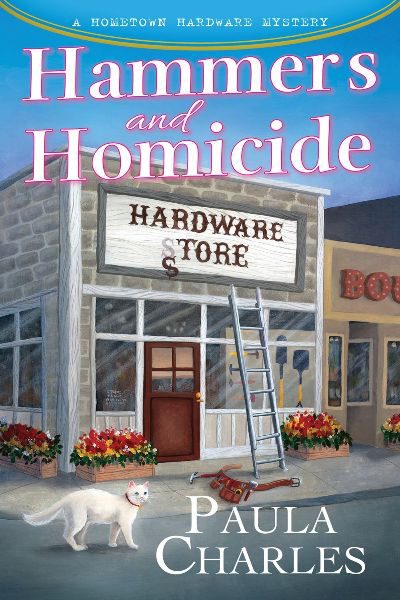Erebus is a resort for the extremely wealthy, and those who visit the sprawling grounds in the heart of the Colorado Rockies get to experience Earth’s distant past. Using cutting-edge technology, scientists have been able to de-extinct mammals like woolly mammoths and plant life from the Pleistocene era. A young couple pays for a camping trip in the sprawling complex and is kidnapped and killed by what appears to be a group of ruthless hunters. Colorado Bureau of Investigation Agent Frances Cash and county sheriff James Colcord lead the investigation. As the mystery creates national headlines, Cash and Colcord meet resistance from both the team at the resort and their own supervisors. What happened to the couple is only the beginning, and the shocking truth will threaten lives and the history books. Preston creates a Michael Crichton level of thought-provoking science and thrilling intrigue while avoiding writing a Jurassic Park clone. Extinction goes beyond the simple question of whether man should play God, and with a terrific cast of characters, Preston has a guaranteed bestseller.
Review
It wasn’t until I began reviewing for firstCLUE that I read mystery anthologies. Now I’m a firm believer that everyone needs an anthology such as this one on their bedside table. The many stories collected here provide the perfect opportunity to relax, unwind, and travel near and far. As Unger writes in the introduction: “…this form [short fiction] has a special kind of magic, the ability to transport you quickly, intensely, to capture character, time, place, and story with immediacy and deliver it all with a punch.” And where our expectation of crime novels is that everything will be resolved in the end, short stories often finish more enigmatically, giving readers something to ruminate about. Ashley-Ruth M. Bernier, for example, transports us, in “Ripen,” to the Virgin Islands, where a politician’s arrogance leads to his dramatic downfall. A. J. Jacono’s “When We Remember Zion” tells the intensely chilling tale of a mentally ill abductor who delivers his hostage’s baby. We accompany an older veteran—now a professional criminal—who tries to escape from a botched job by returning to his childhood cabin in James A. Hearn’s “Home is the Hunter.” “New York Blues Redux,” by William Boyle, depicts a Brooklyn dive bar that becomes the setting for a night of tragedy. Congratulations to editors Unger and Cha for producing a volume as rich in diversity as it is compelling in its narratives.
A floating space station, the Imperium, was once a laboratory but has been crafted into a hotel for the extremely wealthy in Pitkin’s thriller. The first group arrives, and the team onboard is ready to show off the unique features of a stay, including a view of Earth and a supervised spacewalk. Chloe, a biophysicist who misses having her work be the focus of the station, assists in making the visitors feel welcome. It doesn’t help that her boyfriend, the CEO of the hotel, can’t make it at the last minute. She quickly learns that something sinister is happening and that some of the staff she thought she could trust are part of a global terrorist group called The Reckoners. While Chloe remains in hiding, the visitors are taken hostage, and the demand is eight billion dollars. With no hope of rescue and no way to communicate with anyone on Earth to send help, Chloe takes matters into her own hands. This mashup of the films Die Hard and Gravity is an action-adventure reader’s dream. The pacing is relentless and claustrophobic, making it impossible to stop turning the pages. Pitkin has written a winner.
Though there’s a year between them, sisters Crissy and Betsy Dowling are so alike they could be twins. And they don’t only resemble each other, they also look very like one Diana Spencer, the late, lamented Princess of Wales. The resemblance is so strong that Crissy performs as Di in a long-running Las Vegas residency. The casino that hosts the emotional cabaret, the Buckingham Palace, or BP, has seen better days, as has Crissy’s relationship with her lookalike sister. Crissy claims that Betsy killed their mother, the circumstances around that a mystery for most of the book. But that doesn’t stop Betsy from re-entering her sister’s life by leaving her social worker job for her new boyfriend’s cryptocurrency firm that’s setting up shop in Vegas. When the owner of the BP is found dead, and Crissy doesn’t believe the police’s finding that it’s a suicide, it starts a chain of subterfuge and violence that makes the sort-of-royals wish that what happens in Vegas didn’t involve them. Bohjalian has intriguingly veered into a much more noir path than his usual, with the darkness complimenting his typical tight plotting and absorbing family drama. This is one for fans of campy fare mixed with family shenanigans and of Elle Cosimano’s Finlay Donovan.
It’s early into lockdown in the UK, and Sally can’t take any more physical and psychological abuse from her husband—thankfully the kids are grown and out of the house. So she does the only thing she can do: she fights back, smashing him on the head with her iron skillet. But killing is the easy part. It’s disposing of the body that’s the challenge. Fortunately, Sally soon discovers that she’s not the only woman in the neighborhood with a husband rotting away in the basement, packed in cat litter (did you know? It absorbs both odors and fluids). Slowly, these women come together and create quite the self-help group, dubbed the Lockdown Ladies’ Burial Club, which is tasked with disposing of four bodies…and getting away with it. As impossible as this may seem—these women aren’t exactly hooked up with organized crime—they revel in their newly created freedom, gaining the strength to take on seemingly any challenge. As Sally says, “For too long I let a small man steal my joy and potential.” What’s remarkable is how Casale—with a decade of experience in the field of male violence against women—succeeds at moving between the women’s experiences with domestic violence in the past and the dark humor of their present situation, tacitly giving us permission to laugh at times. Well-written with plenty of surprises, twists, and turns to keep readers engrossed. Pair it with Bella Mackie’s How to Kill your Family.
New Yorker Billie has never wanted children. But the series of hurts chronicled over the course of this frenemies story find her standing in the apartment below her former best friend, Cassie’s, place, holding Cassie’s baby while her friend upstairs wails that there’s been a kidnapping. Most of this absorbing tale takes place in the present, when lonely Billie tries over and over to regain the closeness she had with Cassie when they were teens. But Cassie, who’s now a famous Instagram mommy, wants little to do with her. We also flash back to those teen years, when a incident involving Billie’s stepfather, whose sexual abuse of the girl is graphically described, has been kept a secret by Billie and Cassie, leaving them emotionally tied but perhaps also causing their estrangement. As in her Can’t Look Away (2022), Lovering nails the bizarreness of obsessive love—Billie’s for Cassie and Cassie’s for Internet fame—and its twisted outcomes. This book will be a hit with fans of that previous work as well as of Ian McEwan’s Enduring Love.
It’s April 2020, the third week of a pandemic lockdown in an eerily quiet and empty Edinburgh. Detective Chief Inspector Karen Pirie of Police Scotland’s Historic Cases Unit has hunkered down with Detective Sergeant Daisy Mortimer in a “quarantine bubble” in her boyfriend Hamish’s spacious New Town apartment while he isolates up in the Highlands. There are no active cold cases to occupy the two officers, and Karen is languishing while longing for something meaningful to investigate. She fights her restlessness with her daily one-hour walks, the maximum allowed under tight restrictions. But when DC Jason Murray receives a call from a contact at the National Library about an unfinished manuscript in the archives of a recently deceased crime novelist, the team may have stumbled upon a connection to the cold case of a young woman who disappeared a year earlier. But how do they investigate a crime while trying to stay within COVID protocols? A determined Karen finds herself “making mincemeat” of the regulations, but as she tells a colleague, “I have to be out on the streets doing what I do. Because I want the world to still be a decent place when we come out on the other side.” In her seventh atmospheric series thriller, McDermid skillfully combines a twisty plot of murder and vengeance with the personal dramas of her detectives, set against the dramatic backdrop of a global pandemic. By the novel’s end, no one has been left unscathed by this traumatic time. In her acknowledgments, McDermid notes that she penned this novel only in 2023, needing the distance of time to write about those frightening early days. I suspect her book is the first of many crime novels that will explore the impact of COVID on the human psyche.
Everything is creepy about the Windermere, a ritzy, historic New York City apartment building with Rosemary‘s Baby vibes to spare. But at first, Rosie, an author; and Chad, her husband and an aspiring actor, hardly notice. They’re too busy taking care of one of the residents, Chad’s uncle, who has died as the book opens, and who leaves the apartment to the broke young couple—and not his own daughter. Why? And while the residents couldn’t be more welcoming, Rosie—who’s writing a book about the history of the Windermere, focusing especially on the many murders—can’t contain her suspicions. What’s up with the doorman, who seemingly works around the clock? And the child she would swear she saw crouching in the basement? Why are there cameras absolutely everywhere? And, most importantly, why is Chad acting so weird, disappearing for huge stretches of time? Unger’s novels are textbook examples of perfect suspense fiction, and this title is no different. As we race through the narrative, we watch in terror as “something dark is on the horizon” becomes something dark that is right next to you. And we are helpless to stop it. Love New York? Then this super accurate portrayal of the City is doubly fun.
It’s winter when a fire destroys a farmhouse in rural Sweden, burning it to the ground. With the parents out for the night, the only victim was the twenty-something daughter of the house. But she wasn’t killed by the fire; her autopsy reveals that she was murdered by blows to the head. Who would have wanted to kill Lovisa, who was loved by everyone? While the murderer is quickly identified, tried, and jailed, this story continues to expand in multiple directions, exploring the impact of a murder on a community, the families, even Edvard, the perpetrator. It’s also a coming-of-age novel as we follow Edvard’s nephew, who grows up in the shadow of his uncle’s acts, worrying that he too has a propensity for violence. But at its heart, this is the tale of Vidar Jörgensson, a young police officer who was one of the first officers at the fire and helped to solve it, but then spent years ruminating over the case. This is no less than a brilliant crime novel. Carlsson combines his deep knowledge of criminal motivations and trauma—he has a doctorate in criminology—with rich, compelling storytelling. Fans of the TV series Broadchurch and the works of Ann Cleeves will enjoy the deep community focus. Sure to be one of the big books of early 2024.
Dawna Carpenter runs a hardware store in downtown Pine Bluff, Oregon. She struggles to keep it going, especially after the death of her beloved husband, Bob. The building shares space with a boutique, and the woman who runs Lipstick and Lace is a real piece of work. A real-estate developer in town has bold plans to open a luxurious hotel, but when he’s found dead in the hardware store’s bathroom, Dawna’s life gets turned upside down even more than she thought possible. The quirky cast of characters, the slowly building mystery, and the light-hearted tone make Hammers and Homicide a terrific debut. Charles also does an outstanding job of addressing how people deal with the grief of losing a loved one, without being overly depressing. Readers will be fixing to read more mysteries of this series and Paula Charles.

